Memory loss, often associated with aging and conditions like Alzheimer’s disease, has long been a subject of intensive research. Recent advancements in this field have brought new hope for understanding, diagnosing, and potentially treating memory-related disorders. Let’s explore some of the exciting breakthroughs and developments that are shaping the landscape of memory loss research.
Neuroplasticity: Rewiring the Brain for Better Memory
One fascinating discovery is the brain’s remarkable ability to rewire itself, known as neuroplasticity. Researchers have found that even in later life, the brain can form new connections and adapt to compensate for memory loss. This insight has spurred the development of cognitive training programs and therapies aimed at enhancing memory functions through targeted brain exercises.
Genetic Insights: Unraveling the Memory Code
Advancements in genetics have played a crucial role in uncovering the genetic underpinnings of memory loss. Scientists have identified certain genes associated with an increased risk of developing memory-related disorders, shedding light on potential targets for future treatments. These insights are driving the exploration of personalized therapies tailored to an individual’s genetic makeup.
Emerging Biomarkers: Early Detection and Intervention
Researchers are actively working to identify biomarkers—measurable indicators in the body—that could signal the onset of memory loss conditions long before noticeable symptoms appear. Detecting these biomarkers early could enable timely intervention and treatment, potentially slowing down or even preventing the progression of memory-related disorders.
Innovative Therapies: From Medications to Non-Invasive Techniques
Advancements in medical technology have paved the way for innovative memory loss therapies. From experimental medications that target specific brain pathways to non-invasive techniques like transcranial magnetic stimulation (TMS) that stimulate brain regions associated with memory, researchers are exploring a wide range of approaches to improve memory functions.
Lifestyle Interventions: A Holistic Approach to Memory Health
Recent research highlights the impact of lifestyle factors on memory health. Exercise, a balanced diet, quality sleep, stress management, and social engagement have all been linked to better cognitive function and memory retention. This holistic approach emphasizes the importance of adopting a healthy lifestyle to promote optimal brain health and prevent memory decline.
The field of memory loss research is rapidly evolving, offering new insights into the complexities of memory-related disorders and potential avenues for intervention. From harnessing the brain’s neuroplasticity to uncovering genetic factors and exploring innovative therapies, these advancements are paving the way for a future where memory loss may no longer be an insurmountable challenge. While there is still much to learn, the progress being made gives us hope for a brighter future for individuals and families affected by memory-related conditions.


